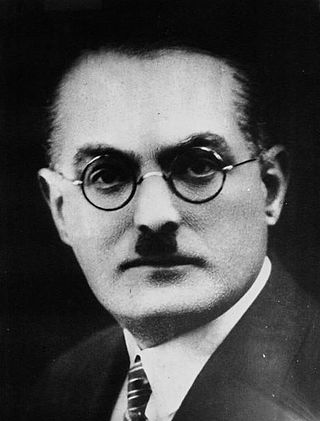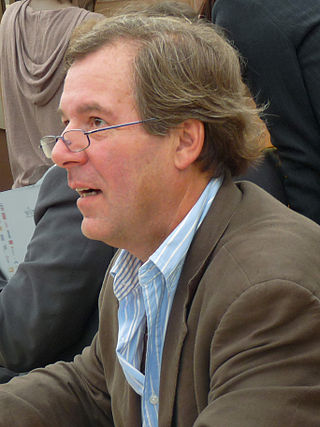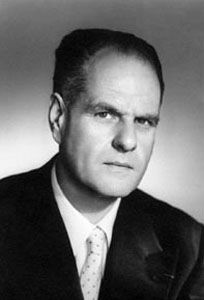Related Research Articles

Antoine Marie Jean-Baptiste Roger, comte de Saint-Exupéry, simply known as Antoine de Saint-Exupéry, was a French writer, poet, aristocrat, journalist and pioneering aviator. He became a laureate of several of France's highest literary awards and also won the United States National Book Award. He is best remembered for his novella The Little Prince and for his lyrical aviation writings, including Wind, Sand and Stars and Night Flight.

Le Monde is a French daily afternoon newspaper. It is the main publication of Le Monde Group and reported an average circulation of 323,039 copies per issue in 2009, about 40,000 of which were sold abroad. It has had its own website since 19 December 1995, and is often the only French newspaper easily obtainable in non-French-speaking countries. It is considered one of the French newspapers of record, along with Libération, and Le Figaro. It should not be confused with the monthly publication Le Monde diplomatique, of which Le Monde has 51% ownership, but which is editorially independent. A Reuters Institute poll in 2021 in France found that "Le Monde is the most trusted national newspaper".

Joseph Kessel, also known as "Jef", was a French journalist and novelist. He was a member of the Académie française and Grand Officer of the Legion of Honour.

Robert Desnos was a French poet who played a key role in the Surrealist movement of his day.

Patrick Poivre d'Arvor is a French TV journalist and writer. He is a household name in France, and nicknamed "PPDA". With over 30 years and in excess of 4,500 editions of television news to his credit, he was one of the longest serving newsreaders in the world until he was fired in 2008. He presented his last newscast on TF1 on 10 July 2008. Since 2021, a total of 27 women have accused Patrick Poivre d'Aror of sexual assault or rape that would have allegedly happened during decades prior. Seventeen women filed a formal complaint. Among them, eight did so for alleged rape.
"Frère Jacques", also known in English as "Brother John", is a nursery rhyme of French origin. The rhyme is traditionally sung in a round.
France Soir was a French newspaper that prospered in physical format during the 1950s and 1960s, reaching a circulation of 1.5 million in the 1950s. It declined rapidly under various owners and was relaunched as a populist tabloid in 2006. However, the company went bankrupt on 23 July 2012, before re-emerging as an online-only media in 2016. In 2020, according to NewsGuard, this media "fails to adhere to several basic journalistic standards".

Marie-Claire Geneviève Alain-Gommier was a French organist, scholar and teacher best known for her prolific recording career, with 260 recordings, making her the most-recorded classical organist in the world. She taught many of the world's prominent organists. She was a specialist in Bach, making three recordings of his complete organ works, as well as French organ music.

Georges Sadoul was a French film critic, journalist and cinema writer. He is known for writing encyclopedias of film and filmmakers, many of which have been translated into English.

Madame Figaro is a French magazine supplement to the Saturday edition of the daily newspaper Le Figaro, focusing on and catering to women.

Corinne Luchaire was a French film actress who was a star of French cinema on the eve of World War II. Her association with the German occupation led her to be sentenced to "national indignity" after the war, and after writing an autobiography, she died from tuberculosis at age 28.
Olivier Georges Alain was a French organist, pianist, musicologist and composer.

Jacques Chardonne is the pseudonym of French writer Jacques Boutelleau. He was a member of the so-called Groupe de Barbezieux.

Roger Vercel was a French writer.
Anne-Marie Cazalis was a French writer, journalist and briefly an actress.
Robert Giraud, was a French journalist, poet and lexicographer. He is the author of over 30 books and subject of the 2009 biography Monsieur Bob by Olivier Bailly.

Marcelle Auclair was a French novelist, biographer, journalist and poet. She published biographies of several important historical figures, translated major historical/literary documents into French from Spanish, and wrote a novel. She also published an autobiographical work, two books on popular psychology, a religious book for children, a book on artistic images of Jesus. Several of her books were translated into English. She was co-founder with Jean Prouvost of the fashion magazine Marie Claire.
Roger Schall was a French photographer and photojournalist who practiced from the end of the 1920s until the 1970s. During World War II, Schall secretly documented the Nazi occupation of Paris. The studio he opened in Montmartre with his brother in 1931 worked as an agency, distributing images in numerous magazines: Vu, Vogue Paris, L'Illustration, Life, Paris Match… 150 covers and 10,000 photos published. Roger Schall produced fashion photography for the fetish clothing company Diana Slip. He photographed many celebrities of his time including Gabrielle Chanel, Colette and Marlène Dietrich.

Jérôme Garcin is a French journalist and writer. He heads the cultural section of the Nouvel Observateur, produces and hosts the radio program Le Masque et la Plume on France Inter, and is a member of the reading committee of the Comédie-Française.

Roland Laudenbach was a French writer, editor, journalist, literary critic and scenarist. He had right-wing political beliefs aligned with the Action Française. After World War II he supported keeping Algeria part of France and saw the 1962 recognition of Algerian independence as a betrayal of the people by Christian and Socialist leaders. He edited or contributed to various literary and political magazines, wrote several novels, and wrote scripts and screenplays for numerous films.
References
- 1 2 "Jean-Jacques Greif Biography". Book Browse. Retrieved 24 July 2019.
- ↑ "Biographie". Jean-Jacques Greif (in French and English). Retrieved 7 September 2019.
- ↑ "Olivier Greif 1950-2000". Jean-Jacques Greif (in French and English). Retrieved 7 September 2019.
- ↑ Greif, Olivier (2019). Journal (in French). [Château-Gontier]: Éditions Aedam Musicae. ISBN 978-2-919046-55-3. OCLC 1105181820. Page 519 provides full dual names for his father.
- ↑ "Jean-Jacques Greif". Ricochet (in French). Retrieved 24 July 2019.
- ↑ "Jean Jacques Greif". Bloomsbury. Retrieved 24 July 2019.
- ↑ "Jean-Jacques Greif". Ecoledesloisirs. Retrieved 24 July 2019.
- ↑ "Greif Jean-Jacques". Histoire d'en lire. Retrieved 24 July 2019.
- ↑ "Biography of Jean-Jacques Greif". France Culture. Retrieved 24 July 2019.